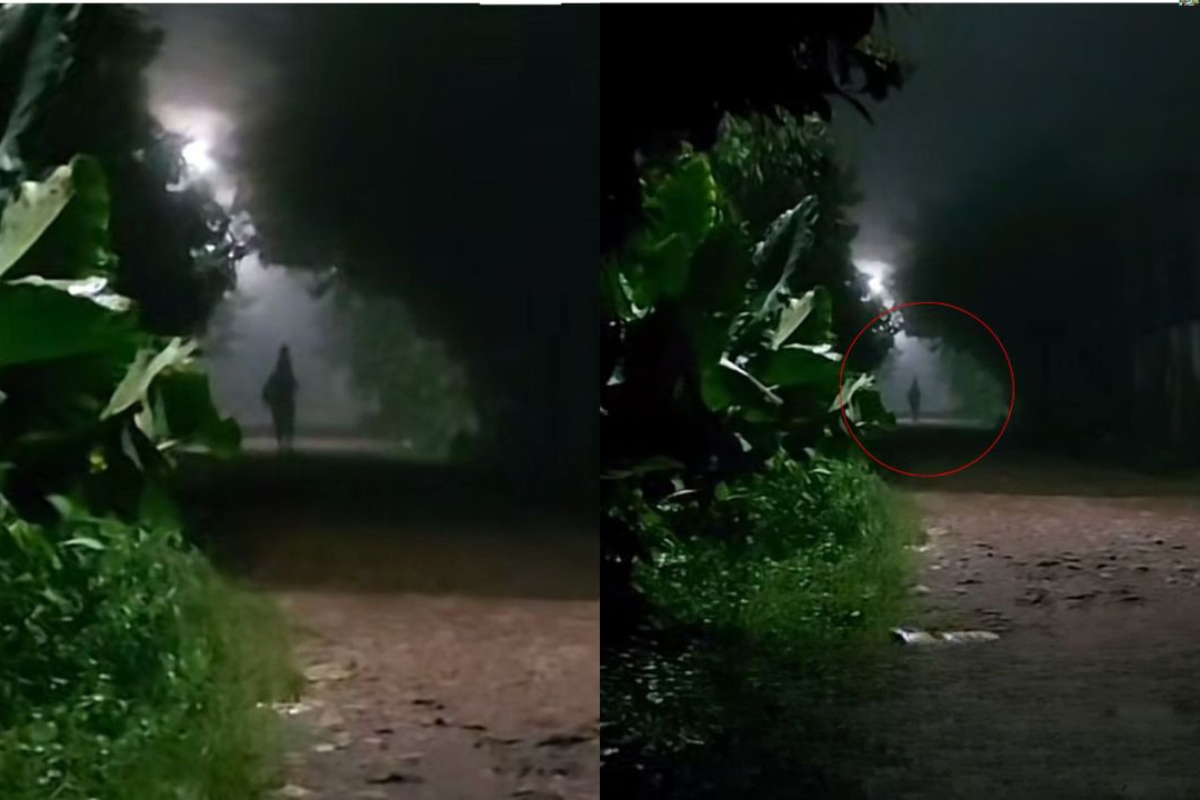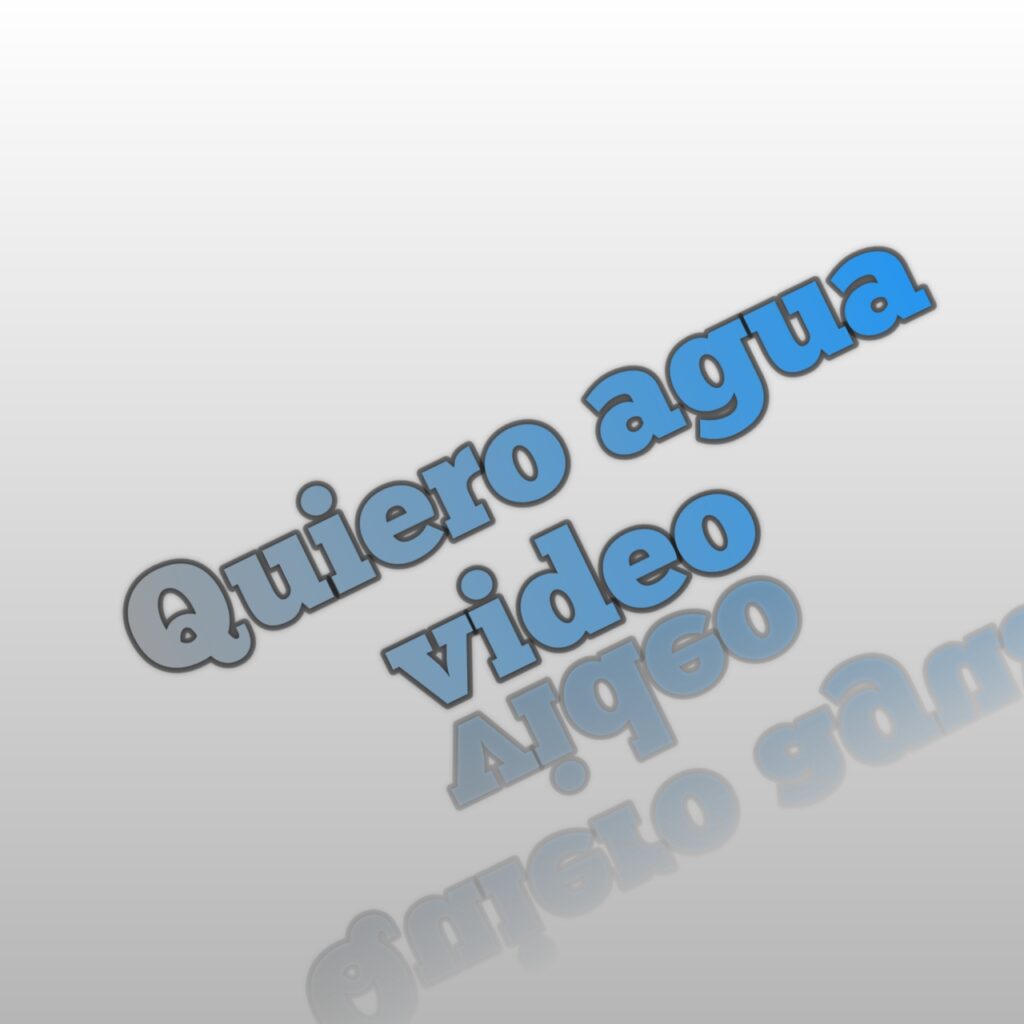Have you ever come across a phrase that just sticks with you, making you wonder about its beginnings? Perhaps you've heard "quiero agua" and then seen it paired with "原版," leaving you a bit puzzled. It's a rather interesting combination, wouldn't you say? People often search for the very first instance of something, especially when it becomes popular or sparks curiosity online, and this phrase is no different, really.
So, what exactly is it about "quiero agua原版" that captures so much attention? Well, it's a mix of a common Spanish request for water and a term, "原版," which means "original version" or "original edition" in languages like Chinese and Japanese. This unusual pairing suggests a search for a specific, perhaps iconic, moment or piece of media where "quiero agua" was uttered. It's almost like looking for the very first time someone said something that later became a widely shared idea or a funny reference, you know?
For many, this quest for the "original" points to a deeper interest in how phrases spread, how culture influences language, and how the internet sometimes creates its own legends. We'll take a closer look at what "quiero agua" truly means, why its "original version" might be so sought after, and how you can better appreciate the fun twists and turns of language, especially when it comes to finding out where things really started. It's quite a linguistic adventure, honestly.
- Camilla Araujo Sex Video
- Elliot Page
- Burger King Guy On Plane
- Burger King Crown Incident
- Brian Steele Lawyer Net Worth
Table of Contents
- What Does "Quiero Agua" Mean?
- The Quest for the "Original Version" (原版)
- Why the Search for Quiero Agua原版?
- Unraveling the Linguistic Threads
- How to Explore Language Origins
- Common Questions About Quiero Agua原版
- Embracing Language and Its Stories
What Does "Quiero Agua" Mean?
Let's start with the basics, because understanding the core phrase is pretty important. "Quiero agua" is a straightforward Spanish sentence. It means "I want water." It's a very common, everyday request that you might hear in any Spanish-speaking place, or even from someone learning the language. So, it's a simple, direct way to express a very basic human need, you see.
The word "quiero" comes from the Spanish verb "querer," which is actually quite versatile. It doesn't just mean "to want." As a matter of fact, it can also mean "to like" or "to love," depending on the context. For instance, if you say "quiero a mi familia," you're saying "I love my family." But when paired with an object like "agua," it pretty much always means "I want."
This little word, "quiero," is also a good example of how Spanish verbs change. It's the first-person singular form of "querer" in the present tense. You can find many translations of "quiero" into English, like "I want," "I like," and "I love," and there are lots of example sentences, too. It's a word you'll encounter a lot if you're trying to pick up some Spanish, and it's quite useful, really.
The Quest for the "Original Version" (原版)
Now, let's talk about the "原版" part. This term, which means "original version" or "original edition," suggests that someone is looking for a specific, foundational instance of "quiero agua." It's not just about the meaning of the words themselves, but about a particular moment or context that gave the phrase a special kind of significance. Perhaps it was in a viral video, a memorable movie scene, or even a piece of music, you know?
People often seek out "原版" when a phrase or image gains a lot of traction online, turning into what some might call a meme or a popular reference. They want to trace it back to its very first appearance, to understand its true roots. It's a bit like trying to find the very first person who told a certain joke; it adds a layer of history and sometimes even a sense of shared discovery to something that becomes widely known, honestly.
This desire for the "original" highlights how much we value authenticity and beginnings in our digital age. When something spreads quickly, its origins can sometimes get a little blurry. So, the search for "quiero agua原版" is a way of trying to clear up that blur, to find the clear starting point of what might be a cultural moment or a linguistic curiosity. It's a rather fascinating aspect of how information travels these days, you see.
Why the Search for Quiero Agua原版?
The interest in "quiero agua原版" likely comes from a few places. First, there's the straightforward desire for information. People hear a phrase, and they want to know everything about it, including where it came from. This is a pretty natural human impulse, especially when something feels a bit out of the ordinary, or, you know, when it pops up repeatedly in different places.
Then, there's the internet's role in creating and spreading cultural references. Phrases, images, and short videos can go viral very quickly, and sometimes the original source gets lost in all the sharing. When this happens, people often try to dig back through the digital layers to find that initial spark. It's a kind of digital archaeology, in a way, trying to find the very first instance of something that has since branched out into many different forms.
Also, the combination of Spanish and a term from East Asian languages ("原版") makes it quite unique. This blend itself can make people wonder about the story behind it. Is it a cross-cultural meme? Did someone from one culture use a term from another to describe something? This linguistic mash-up definitely adds a layer of intrigue, prompting folks to ask, "What's the deal with this?" It's quite an interesting puzzle, to be honest.
Unraveling the Linguistic Threads
To really appreciate the search for "quiero agua原版," it helps to look a bit closer at the words themselves and how they work. Understanding the nuances of "quiero" and the simple directness of "agua" can give you a better sense of why this particular phrase might become a subject of origin stories. It's all part of the bigger picture of how language operates, you know.
The Versatility of "Quiero"
The verb "querer" is a good example of how one word can carry several meanings depending on the context. You can say "quiero un libro" (I want a book), or "quiero aprender español" (I want to learn Spanish). But then you can also say "quiero a mi perro" (I love my dog) or "quiero mucho a mis amigos" (I really like/love my friends). So, it's pretty flexible, actually.
This range of meaning for "quiero" means that while "quiero agua" is quite clear, the verb itself has a lot of depth. It's a fundamental part of expressing desires, affections, and intentions in Spanish. Learning how to use "quiero" correctly is a big step for anyone picking up the language, and it's something that you'll use constantly, believe me. It's a rather useful word to have in your vocabulary, that's for sure.
If you're ever curious about how verbs like "querer" change, you can easily look up their conjugations. There are many resources that show you how "querer" transforms in different tenses and for different subjects. It's quite helpful for getting a solid grasp on Spanish grammar, and it helps you to speak more naturally, too. You can find all sorts of information on how to use "quiero" in different situations, like your text says, it's very easy to use.
Agua: A Universal Need
"Agua" means "water," and it's a word that connects to a universal human need. Water is essential for life, so the request for it is something everyone can relate to, no matter what language they speak. This universal appeal might be one reason why a phrase like "quiero agua" could potentially become widely recognized, even across different cultures. It's a very simple, yet powerful, concept, in a way.
The simplicity of "agua" as a concept contrasts a bit with the possible complexity of finding its "原版" moment. It's a reminder that even the most basic requests can sometimes have a fascinating story behind them, especially when they become part of a larger cultural conversation. So, while the word itself is plain, its journey through the internet or popular culture might be anything but simple, you know?
Thinking about "agua" also brings up how language helps us express our most fundamental requirements. Whether it's "quiero agua" in Spanish, or "I want water" in English, or similar phrases in countless other languages, the underlying need is the same. This shared human experience makes linguistic explorations like the search for "quiero agua原版" even more interesting, because it connects us all, basically.
How to Explore Language Origins
If you're keen on finding the "original version" of phrases or understanding how language evolves, there are some pretty cool ways to go about it. First off, using search engines effectively is key. Try different combinations of keywords, like "quiero agua meme origin" or "quiero agua viral video," to see what comes up. Sometimes, the right search query makes all the difference, you know?
Social media platforms and online forums can also be a goldmine for this kind of research. Communities dedicated to memes, linguistics, or specific cultural phenomena often discuss the origins of popular phrases. You might find someone who remembers seeing the "original" post or video, and that can lead you down a very interesting rabbit hole, as a matter of fact.
For more general language learning and understanding, there are many excellent resources available. For instance, you can look up translations and example sentences for words like "quiero" to really get a feel for their usage. Websites dedicated to Spanish language learning, or even just online dictionaries, can provide a lot of insight. You can learn more about Spanish verb conjugations on our site, and link to this page for more common Spanish phrases. It's pretty amazing how much information is out there these days, honestly.
Also, don't be afraid to look at academic papers or linguistic studies if you're really serious about understanding language evolution. While "quiero agua原版" might be a more recent internet phenomenon, the principles of how language changes and spreads are often discussed in such works. It's a way to get a deeper appreciation for the mechanics of communication, you know. Sometimes, a little academic background can really help clarify things.
And remember, language is always growing and changing. What's popular today might be a forgotten reference tomorrow, but the story behind it often remains interesting. So, keep an open mind and enjoy the process of discovery. It's a rather fun way to learn about culture and communication, to be honest.
Common Questions About Quiero Agua原版
What does "quiero agua" mean?
"Quiero agua" is a Spanish phrase that directly translates to "I want water." It's a very common and straightforward way to express a desire for water in Spanish-speaking regions. So, if you're ever thirsty in a Spanish-speaking country, you know what to say, basically.
Why are people looking for the "original version" of "quiero agua"?
The search for the "original version," or "原版," often happens when a phrase or concept gains popularity online, possibly becoming a meme or a widely shared cultural reference. People want to trace it back to its first appearance to understand its context and origins. It's a bit like finding the very first time a famous quote was uttered, you know?
How can I learn more about Spanish phrases like "quiero agua"?
There are many ways to learn more about Spanish phrases! You can use online dictionaries and translation tools, explore language learning websites, or even watch Spanish-language media like movies and TV shows. Practicing with native speakers or language exchange partners can also be incredibly helpful. It's all about immersing yourself a little bit, you see.
Embracing Language and Its Stories
The journey to find "quiero agua原版" is more than just looking up a phrase; it's about exploring the lively, ever-shifting nature of language and how it connects with popular culture. It shows us how a simple request for water can take on new layers of meaning when it's picked up and shared across different communities. It's a pretty cool reminder of how language is a living thing, you know?
Whether you're a language enthusiast, a curious internet explorer, or someone just trying to understand a funny reference, the search for origins like this can be quite rewarding. It helps us appreciate the small pieces of language that become big ideas. So, keep asking questions, keep digging for those original stories, and keep enjoying the rich tapestry of words that surrounds us. It's a rather engaging pursuit, to be honest, and there's always something new to discover.
And remember, every word has a story, and sometimes, those stories are just waiting for us to uncover them. It's pretty neat, really. For more insights into language and its cultural impact, you might find interesting articles on linguistic trends on sites like Britannica's Linguistics section. It's a good place to start, if you're looking for something like that.
Related Resources:



Detail Author:
- Name : Karson Dibbert
- Username : boyer.talia
- Email : oschuppe@lemke.com
- Birthdate : 1981-12-12
- Address : 3967 Hayes Brook Apt. 373 Milfordborough, CO 77987
- Phone : +1-820-860-9862
- Company : White-Kuhlman
- Job : Forest and Conservation Worker
- Bio : Qui perferendis repudiandae quo. Reiciendis aliquam velit ratione. Qui facilis debitis tempora sint iure. Et nihil labore nesciunt voluptas dolore aliquam quo. Quos quia molestiae quia consequuntur.
Socials
instagram:
- url : https://instagram.com/jhettinger
- username : jhettinger
- bio : Dignissimos ratione alias velit asperiores. Eaque et odio officiis tempora aut dolor.
- followers : 3352
- following : 1555
facebook:
- url : https://facebook.com/hettinger2006
- username : hettinger2006
- bio : Hic iste quam similique natus veritatis.
- followers : 263
- following : 1985
tiktok:
- url : https://tiktok.com/@jacinthe.hettinger
- username : jacinthe.hettinger
- bio : Amet iste rerum nostrum enim itaque. Saepe dolorem autem possimus fugit.
- followers : 1492
- following : 1754